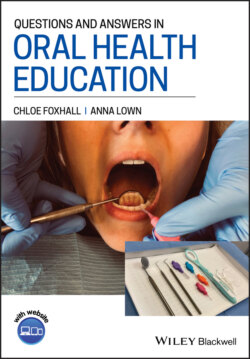Читать книгу Questions and Answers in Oral Health Education - Chloe Foxhall - Страница 13
Dental Nurse
ОглавлениеA dental nurse is trained to work alongside the dentist and support them while servicing patients in whichever area they decide to work; this could be in a general practice, NHS, or private, community dental services, armed forces, or hospital services. Before 2008, dental nurses were not classed as a registered profession. A dental nurse at that time could be recruited and work without any education or professional qualification. Now, a dental nurse – on completing their qualification with an accredited course provider – must register with the GDC in order to continue working. This registration is then renewed every year in order to continue working in the profession.
A dental nurse role should include, but is not limited to, the following:
Performing chairside assistance to a dentist, hygienist, or therapist throughout all procedures safely and effectively and in accordance to the GDCS scope of practice and your level of training.
Following practice policies and procedures.
Maintaining indemnity and registration with the GDC.
Undertaking CPD in line with the GDC guidelines for E‐CPD.
Maintaining and promoting productive working relationships with colleagues.
Assisting any trainee dental nurses within the practice.
Assisting with any reception or other clerical duties as required.
Following health and safety guidelines to ensure safety for all members of the dental team.
Complying with all guidelines, such as: PPE, COSHH, mercury handling, infection control, and waste disposal.
Acting in accordance to all practice rules and codes of conduct.
Key tasks for a dental nurse could be, but are not limited to:
Following the practice procedures for infection prevention and control.
Setting up and preparing treatment rooms for each patient's appointment.
Preparing necessary materials and instruments, making sure that equipment and instruments are in safe working order.
Disposing of waste in the correct bins, such as clinical waste, special waste, and normal waste.
Assisting during taking and development of radiographs to your level of training.
Having relevant paperwork ready on reception, in surgery, or for a patient if requested.
Preparing and sending referrals to your level of training.
Maintaining and decontaminating equipment as per manufacturer's instructions.
Providing chairside support to the dentist, hygienist, or therapist during treatments.
Preparing materials and equipment.
Assisting in keeping full, accurate, and contemporaneous clinical notes for each patient.
Monitoring, supporting, and reassuring patients.
Supporting colleagues if there is a medical emergency.
Following all compliance rules set out by your practice.
